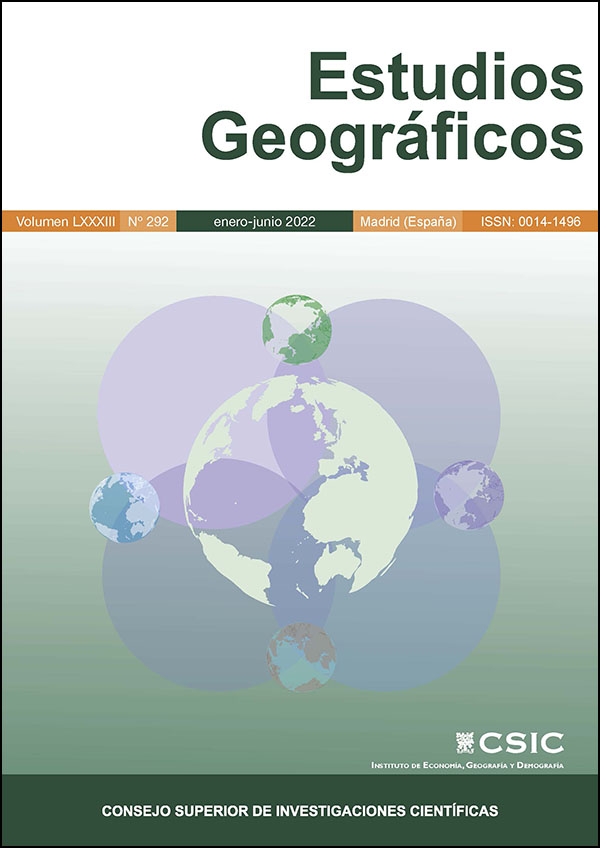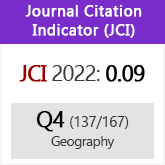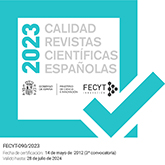La información de los medios de comunicación sobre la escasez de mano de obra en la horticultura del Reino Unido durante la pandemia de COVID-19: el uso de metáforas bélicas en la revelación selectiva de la precariedad laboral/de los trabajadores
DOI:
https://doi.org/10.3989/estgeogr.2022115.115Palabras clave:
Agricultura, COVID-19, Alimentación, Horticultura, Trabajo, Medios de comunicación, Migración, EscasezResumen
A lo largo del siglo XXI, casi toda la mano de obra de las cosechas del Reino Unido ha sido de origen extranjero. La crisis de la COVID-19 (a partir de marzo de 2020) amenazó la seguridad alimentaria del Reino Unido al limitar este suministro de mano de obra extranjera con bajos salarios en el Reino Unido. En respuesta, se lanzó una campaña nacional para conseguir un “ejército de tierra” nacional que “alimentara a la nación” y “recogiera para Gran Bretaña” (los tres principales epítetos utilizados). El artículo describe esta campaña. Se muestra que la crisis del COVID-19 puso en el punto de mira la mano de obra de las cosechas con bajos salarios, cuando esta mano de obra suele estar oculta a la vista del público. Potencialmente, esta revelación podría haber cuestionado la economía del sistema de producción de alimentos. Sin embargo, sostenemos que la ruptura se escenificó invocando una retórica bélica y tres papeles clave concomitantes: el agricultor víctima-héroe, el buen emigrante y el suplente reacio de origen británico. Esto enfatiza la naturaleza valiente del trabajo de la cosecha y enmarca a los trabajadores inmigrantes como héroes (temporales) que ayudan a salvar la nación. Por el contrario, la reticencia de los trabajadores británicos a aceptar el trabajo precario se presentaba como una deficiencia personal y no como un fracaso estructural en la creación de empleos decentes. En definitiva, la crisis de la COVID-19 puso el foco de atención en la economía rural de bajos salarios y fue cuidadosamente dirigida y gestionada, sin cuestionar la persistencia del trabajo hortícola precario.
Descargas
Citas
Altheide, D. L. (2009). Moral panic: From sociological concept to public discourse, Crime Media Culture, 5(1), 79-99. https://doi.org/10.1177/1741659008102063
Bauder, H. (2005). Landscape and scale in media representations: the construction of offshore farm labour in Ontario, Canada, Cultural Geographies, 12(1), 41-58. https://doi.org/10.1191/1474474005eu322oa
Bauder, H. (2008). Foreign farm workers in Ontario (Canada): exclusionary discourse in the newsprint media, The Journal of Peasant Studies, 35(1), 100-118. https://doi.org/10.1080/03066150801983287
Bell, D. (2006). Variations on the rural idyll. In P. Cloke, T. Marsden and P. Mooney (Eds.), The Handbook of Rural Studies (pp. 159-160). London, UK: Sage. https://doi.org/10.4135/9781848608016.n10
Berg-Nordlie, M. (2018). New in town. Small-town media discourses on immigrants and immigration. Journal of Rural Studies, 64, 210-219. https://doi.org/10.1016/j.jrurstud.2018.05.007
BBC (2020, October 27th). UK farmers to need 'thousands of foreign workers' next summer. UK: British Broadcasting Corporation. Retrieved from https://www.bbc.co.uk/news/business-54712374.
Campbell, I. (2019). Harvest labour markets in Australia: Alleged labour shortages and employer demand for temporary migrant workers. Journal of Australian Political Economy, (84), 46-88.
Cook, I. (2006). Geographies of food: following. Progress in Human Geography, 30(5), 655-666. https://doi.org/10.1177/0309132506070183
Corrado, A., C. de Castro and D. Perrotta (2017a) Migration and agriculture: mobility and change in the Mediterranean area. Abingdon, UK: Routledge.
DEFRA (2021) Pick for Britain Campaign - FOI2021/10325 - Response. Available at: https://www.gov.uk/government/publications/pick-for-britain-campaign-foi202110325.
Doeringer, P.B. and Piore, M. (1971) Internal labor markets and manpower analysis. Lexington MA, USA: DC Heath.
EFRA (2020). The UK's new immigration policy and the food supply chain. Environment Food and Rural Affairs Committee, third report of session 2019-2021, HC 231. London, UK: House of Commons.
Farinella, D. and M. Nori. (2021). Lessons from the mountains: mobility and migrations in Euro-Mediterranean agro-pastoralism. In J. F. Rye and K. O'Reilly (Eds.), International Labour Migration to Europe's Rural Regions. (pp. 70-85). London: Routledge. https://doi.org/10.4324/9781003022367-6
FarmingUK (2020, June 15th). Government criticised for spending 'pittance' on 'Pick for Britain'. Retrieved from: https://www.farminguk.com/news/government-criticised-for-spending-pittance-on-pick-for-britain-_55869.html
Gertel, J. and Sippel, S.R. (2014) Seasonal workers in Mediterranean agriculture: the social cost of eating fresh. Abingdon, UK: Routledge. https://doi.org/10.4324/9781315884431
Halfacree, K. (2014). Jumping up from the armchair: beyond the idyll in counterurbanisation. In M. Benson and N. Osbaldiston (Eds.), Understanding Lifestyle Migration (pp.92-118). Basingstoke, UK: Palgrave. https://doi.org/10.1057/9781137328670_5
Halfacree, K. (2021). 'If we do not have the pickers, we do not have the industry': rural UK under a Brexit shadow. In J.F. Rye and K. O'Reilly (Eds.), International Labour Migration to Europe's Rural Regions (pp. 228-245). London, UK: Routledge. https://doi.org/10.4324/9781003022367-14
Harvey, D. (1990). Between space and time: reflections on the geographical imagination. Annals of the Association of American Geographers, 80(3), 418-434. https://doi.org/10.1111/j.1467-8306.1990.tb00305.x
Hoey, B. (2009). Pursuing the Good Life: American Narratives of Travel and a Search for Refuge. In M. Benson and K. O'Reilly (Eds.), Lifestyle Migration: Expectations, Aspirations and Experiences (pp. 31-50). Farnham, UK: Ashgate.
Hoggart, K., & Mendoza, C. (1999). African immigrant workers in Spanish agriculture. Sociologia Ruralis, 39(4), 538-562. https://doi.org/10.1111/1467-9523.00123
Horgan, M., & Liinamaa, S. (2017). The social quarantining of migrant labour: everyday effects of temporary foreign worker regulation in Canada. Journal of Ethnic and Migration Studies, 43(5), 713-730. https://doi.org/10.1080/1369183X.2016.1202752
Lever, J. and Milbourne, P. (2017). The structural invisibility of outsiders: the role of migrant labour in the meat-processing industry. Sociology, 51(2): 306-322. https://doi.org/10.1177/0038038515616354 PMid:28490818 PMCid:PMC5405825
McAreavey, R. (2017). Migrant identities in a new immigration destination: revealing the limitations of the 'hard working'migrant identity. Population, Space and Place, 23(6), e2044. https://doi.org/10.1002/psp.2044
MRC (2021) Who owns the UK media? London, UK: Media Reform Coalition.
Milbourne, P. (2004). Rural Poverty: marginalisation and exclusion in Britain and the United States. London, UK: Routledge. https://doi.org/10.4324/9780203499139
Milbourne, P., and Coulson, H. (2021). Migrant labour in the UK's post-Brexit agri-food system: Ambiguities, contradictions and precarities. Journal of Rural Studies, 86, 430-439. https://doi.org/10.1016/j.jrurstud.2021.07.009
Morrison, J. (2019). Re-framing free movement in the countdown to Brexit? Shifting UK press portrayals of EU migrants in the wake of the referendum. The British Journal of Politics and International Relations, 21(3), 594-611. https://doi.org/10.1177/1369148119851385
O'Reilly, K. (2012). Ethnographic Methods. London, UK: Routledge. https://doi.org/10.4324/9780203864722
O'Reilly, K. (2014). The role of the social imaginary in lifestyle migration: employing the ontology of practice theory. In M. Benson and N. Osbaldiston (Eds.) Understanding Lifestyle Migration (pp. 211-234). Basingstoke, UK: Palgrave. https://doi.org/10.1057/9781137328670_10
Papadopoulos, A. G., Fratsea, L. M., & Mavrommatis, G. (2018). Governing migrant labour in an intensive agricultural area in Greece: Precarity, political mobilization and migrant agency in the fields of Manolada. Journal of Rural Studies, 64, 200-209. https://doi.org/10.1016/j.jrurstud.2018.03.013
Piore, M. (1979) Birds of passage: migrant labour in industrialised societies. Cambridge, UK: Cambridge University Press. https://doi.org/10.1017/CBO9780511572210
Rogaly, B. (2008). Intensification of workplace regimes in British horticulture: the role of migrant workers. Population, space and place, 14(6), 497-510. https://doi.org/10.1002/psp.502
Rye, J.F. and O'Reilly, K. (2021). International Labour Migration to Europe's Rural Regions. London, UK: Routledge. https://doi.org/10.4324/9781003022367
Rye, J. F., and Scott, S. (2018). International labour migration and food production in rural Europe: a review of the evidence. Sociologia Ruralis, 58(4), 928-952. https://doi.org/10.1111/soru.12208
Scott, D., Shenton, N. and Healey B. (1991). Hidden Deprivation in the Countryside. UK, Peak Park Trust.
Scott, S. (2013a). Labour, migration and the spatial fix: evidence from the UK food industry. Antipode, 45(5), 1090-1109. https://doi.org/10.1111/anti.12023
Scott, S. (2013b). Migrant-local hiring queues in the UK food industry. Population, Space and Place, 19(5), 459-471. https://doi.org/10.1002/psp.1734
Scott, S. (2022) The entanglement of employers and political elites in migration policy-making: the case of Brexit and the revival of UK horticulture's guestworker scheme. Evidence and Policy. https://doi.org/10.1332/174426421X16445087491820
Scott, S. and Rye, J.F. (2021). Praised, prized, yet penalised: a critical examination of low-wage hiring queues in the global strawberry industry. Journal of Rural Studies, 88, 473-481. https://doi.org/10.1016/j.jrurstud.2021.04.014
Scott, S., and Visser, M. A. (2022). Constraining Labour: The integration dynamics of working-class horticultural migrants in rural areas of Norway, the UK and the US. Sociologia Ruralis, 62(1), 112-130. https://doi.org/10.1111/soru.12363
Serban, M., Molinero-Gerbeau, Y. and Deliu, A. (2021). Are the guest-worker programmes still effective? Romanian migration to Spanish agriculture. In J.F. Rye and K. O'Reilly (Eds.), International Labour Migration to Europe's Rural Regions (pp. 22-36). London, UK: Routledge. https://doi.org/10.4324/9781003022367-3 PMid:32685034 PMCid:PMC7364002
Short, B. (2006). Idyllic ruralities. In P. Cloke, T. Marsden, and P. Mooney (Eds.), The Handbook of Rural Studies (pp. 133-148). London, UK: Sage. https://doi.org/10.4135/9781848608016.n9
Shubin, S., Findlay, A. and McCollum, D. (2014). Imaginaries of the ideal migrant worker: a Lacanian interpretation. Environment and Planning D: Society and Space, 32(3), 466-483. https://doi.org/10.1068/d22212
Smith, D, Deacon, D. and Downey, J. (2021). Inside out: The UK press, Brexit and strategic populist ventriloquism. European Journal of Communication, 36(1), 21-37. https://doi.org/10.1177/0267323120940917
Stachowski, J. and K. Fialkowska. (2021). 'Living on the edge'? a comparative study of processes of marginalization among Polish migrants in rural Germany and Norway. In J. F. Rye and K. O'Reilly (Eds.), International Labour Migration to Europe's Rural Regions. (pp. 104-120). London, UK: Routledge. https://doi.org/10.4324/9781003022367-8
Standing, G. (2011). The Precariat: the new dangerous class. London, UK: Bloomsbury Academic. https://doi.org/10.5040/9781849664554
Torres, R.M., Popke, E.J. and Hapke, H.M. (2006). The South's silent bargain: rural restructuring, Latino labor and the ambiguities of migrant experience. In O. Furuseth and H. Smith (Eds.) The New South: Latinos and the transformation of place (pp. 37-67). Burlington, USA: Ashgate Press.
Publicado
Cómo citar
Número
Sección
Licencia
Derechos de autor 2022 Consejo Superior de Investigaciones Científicas (CSIC)

Esta obra está bajo una licencia internacional Creative Commons Atribución 4.0.
© CSIC. Los originales publicados en las ediciones impresa y electrónica de esta Revista son propiedad del Consejo Superior de Investigaciones Científicas, siendo necesario citar la procedencia en cualquier reproducción parcial o total.Salvo indicación contraria, todos los contenidos de la edición electrónica se distribuyen bajo una licencia de uso y distribución “Creative Commons Reconocimiento 4.0 Internacional ” (CC BY 4.0). Puede consultar desde aquí la versión informativa y el texto legal de la licencia. Esta circunstancia ha de hacerse constar expresamente de esta forma cuando sea necesario.
No se autoriza el depósito en repositorios, páginas web personales o similares de cualquier otra versión distinta a la publicada por el editor.
















